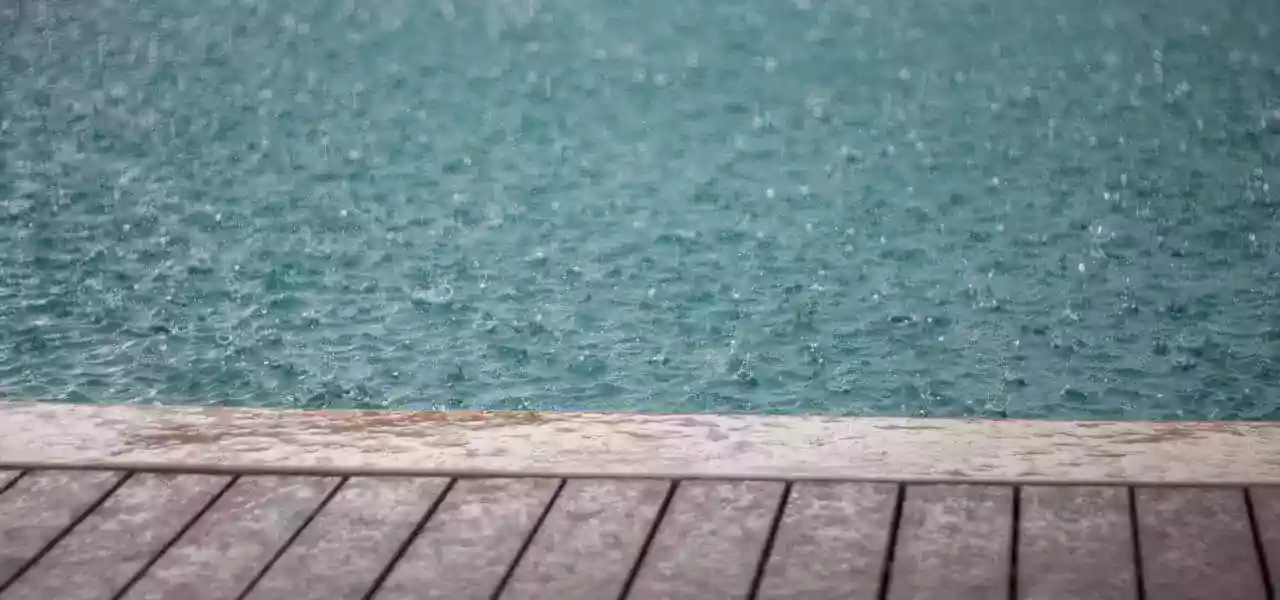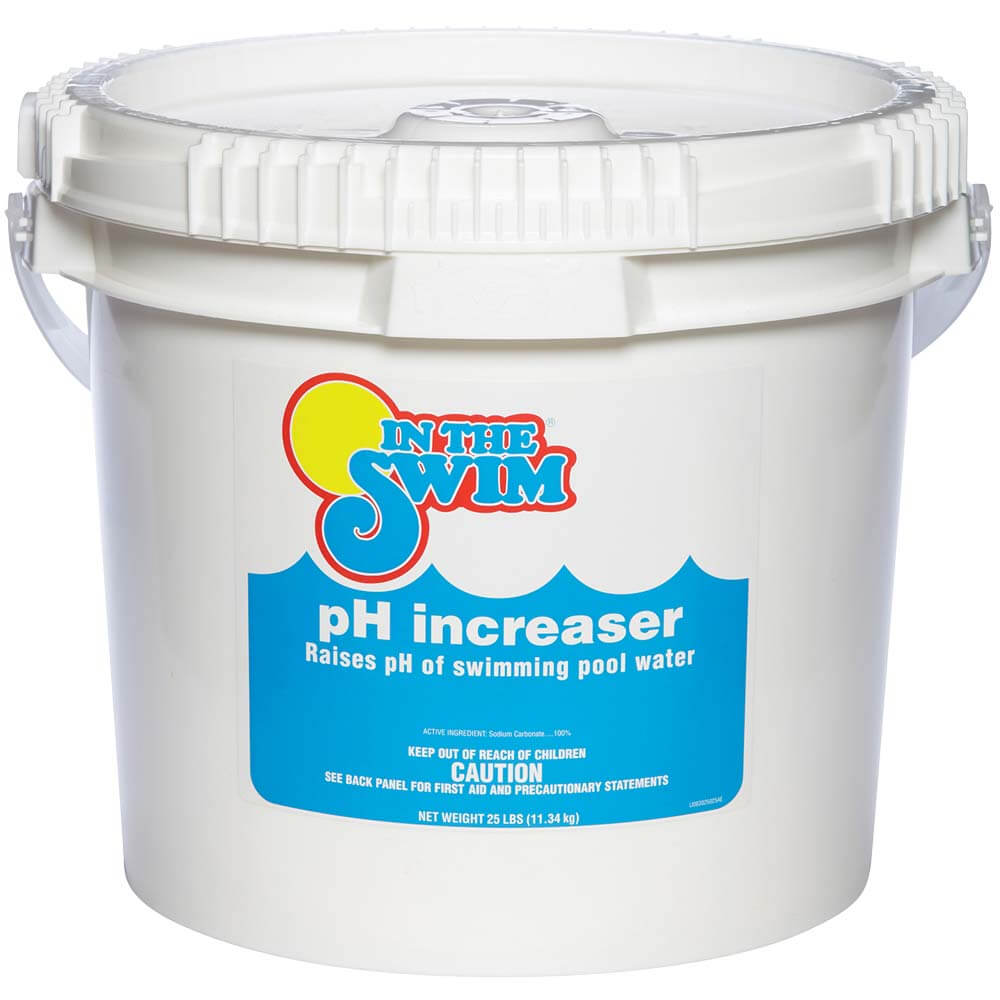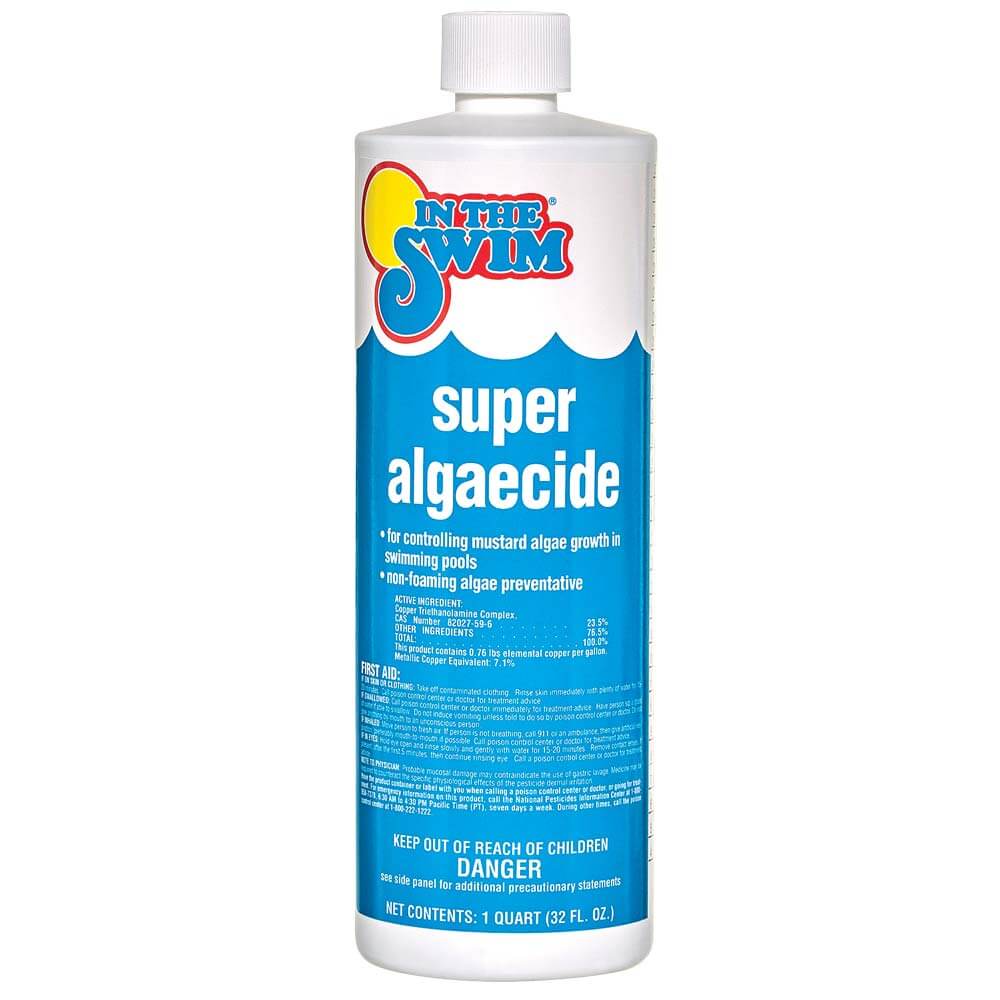FREE Standard Shipping On All Orders $100 or More!*

Heavy Rains & Pool Water Chemistry
Heavy rains have become the norm in recent years, even for areas once drought-stricken. The skies have opened up, and filled our pools with rain in the process.
Our question today is: What is the effect of rain on pool water chemistry?
Isn't Rain Water Pure, Distilled Water?
Almost. Formed from evaporated water, rainwater leaves behind minerals, carbonates, and dissolved solids on the ground, as it evaporates into the air. As for pool maintenance, rainstorms can raise the water level in the pool so high that the skimmer no longer skims, and high winds can deposit debris and leaves into the pool.
Heavy Rains and pH

Acid rain is rainwater that has absorbed carbonic acid and sulfuric acid from atmospheric gases. Such rain is not usually extremely acidic, but may fall in the 5.5–6.5 pH range. Which is low enough to affect your pool pH levels, in addition to environmental concerns.
Pure rainwater is initially neutral in pH, a perfect 7.0, but quickly absorbs low pH contaminants as it falls through the sky. The effect of low pH rain on your pool's pH level is usually small, with the exception of heavy rains over a period of days, which can require pH Increaser to correct.
Heavy Rains and Total Alkalinity
Rain will decrease your Total Alkalinity level in the pool over time, requiring an addition of Alkalinity Increaser to correct. Pure rain water has a Total Alkalinity measurement near zero, and heavy rains will dilute your pool alkalinity level, falling by 5 or 10 ppm in a day.
Low alkalinity and low pH levels in pools can create a corrosive water environment, which can be bad for pool surfaces, as well as metals and rubbers used around the pool.
Heavy Rains and Calcium Hardness
Rain water is very soft, meaning it has very little calcium build up in it. If your pool water is already too soft, the addition of extra-soft rain water is not good. Use Calcium Hardness Increaser to increase the level of calcium hardness in your pool after a storm.
Conversely, if your pool water is too hard, rain water can actually be beneficial in lowering calcium hardness levels.
Heavy Rains and Cyanuric Acid
Cyanuric Acid, which is like sunscreen for your chlorine, will likely diminish during a heavy rainstorm. The level of Cyanuric Acid for an outdoor pool should be between 20–50 ppm.
When the storm clears and then sunshine returns, be sure to test your pool water's Cyanuric Acid level, so the chlorine level stays in its ideal range. Speaking of...
Heavy Rains and Chlorine
You may be sensing a trend here, and that is that rainfall seems to dilute the levels for pH, alkalinity, hardness, stabilizer, and chlorine too. Leaves, dust, and debris that wash into your pool during a storm create a high chlorine demand. Boost the chlorine levels just before a storm, to handle the additional demand.
Heavy Rains and Algae

Rain water does not produce algae on its own, but it does provide food for algae. Phosphates and nitrates are a delicacy for algae, and are frequently washed into your pool when a heavy rain rolls through. Rain also reduces chlorine levels, and if there's a power outage, your pool filter will shut off and no longer sift through contaminants in your water.
If trees overhang the pool, you may find the pool turns green after a heavy rain. This is a combination of leaf tannins, pollen, and forms of chlorophyll that make their way into the pool. Add shock and an algaecide to your pool water to remove the pesky contaminant.
Heavy Rains and Cloudy Water
Another cause of concern with so much rain is that the pool may become cloudy. Rain water is a likely cause, but not the main reason that pool water gets cloudy after a rainstorm. In most cases, your pool's chlorine level will drop due to contaminants in the rain, phosphates will elevate, and the amount of fine debris will rise considerably. Use of clarifiers or enzymes will help clear up any cloudy or debris-filled pool water.
So as you can see, rainfall has a huge effect on pool water chemistry. Especially when it seems to rain every day for weeks on end! For more information on how rain affects your pool water, check out our post Heavy Rains & Swimming Pools.